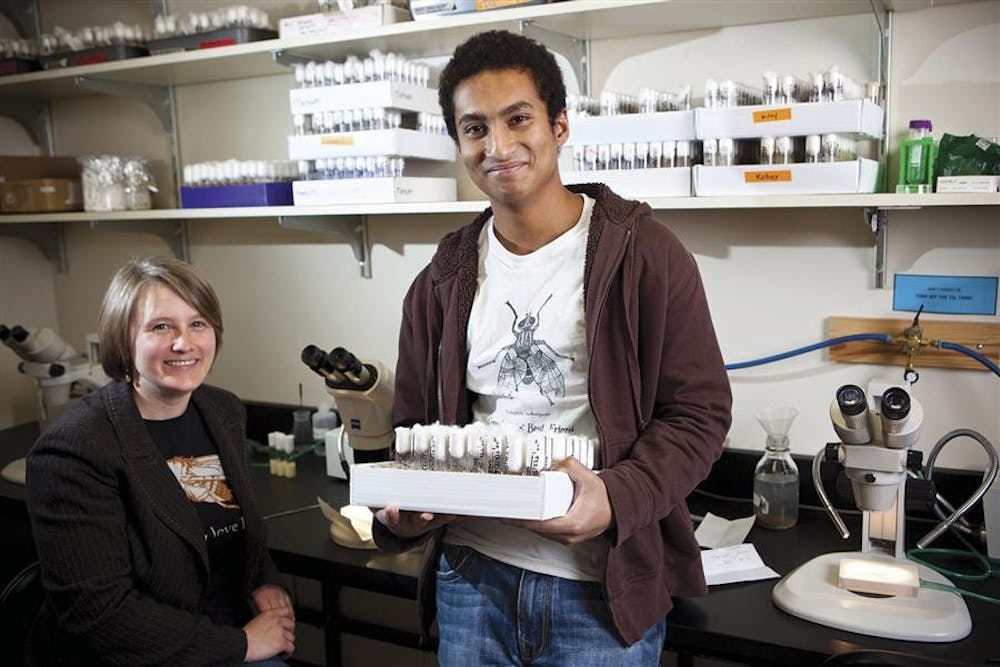A team of researchers from Brown University and IU has discovered the link between the mitochondrial and the nuclear genome.
The team included IU biologist Kristi Montooth, Colin Meiklejohn and former IU undergrad Mo Siddiq.
The research revealed that mutations in the two genomes — mitochondrial DNA and nuclear DNA — could create incompatibilities that reduce reproductive fitness and delay development in fruit flies.
According to a press release from Feb. 5, the research describes the cause and consequences of an interaction between the two genomes that co-exist within eukaryotic cells.
“One reason this research is so important is that there are many diseases that have to do with mitochondrial mutations,” Montooth said.
Montooth said the findings suggest the combined mitochondrial-nuclear genotype for tRNAs and their tRNA synthetases might in fact be a better predictor of genetic disease.
The team altered mRNA in fruit flies, which led to mutations in the bristles on their body, causing them to be shorter.
“All eukaryotic cells have two genomes: the mitochondrial genome and the nuclear genome, the main one,” Montooth said. “Mitochondria are really crucial and require the use of two genomes. Potentially there could be changes in one genome and not the other.”
The change on one genome can cause many different diseases in humans, such as neuromuscular and neurodegenerative disorders, according to the press release. The mitochondrial-nuclear genotype is, in fact, a better predictor of disease.
The research also discovered that because the two genomes are distinct, they carry genes that help show species formation. Another discovery was that breeding between species doesn’t work, Montooth said.
It was also discovered how much of an impact environment has on the genomes.
The researchers found recently that interactions between genomes are dependent on temperature.
“Environment leads to disease; just like with obesity, you can exercise and eat better. Higher and lower temperatures affected the genotypes,” Montooth said.
The research, which was funded in part by IU and the IU Hutton Honors College, will continue in hopes of making more discoveries concerning DNA.
IU researchers discover genetic links within cells

Get stories like this in your inbox
Subscribe





